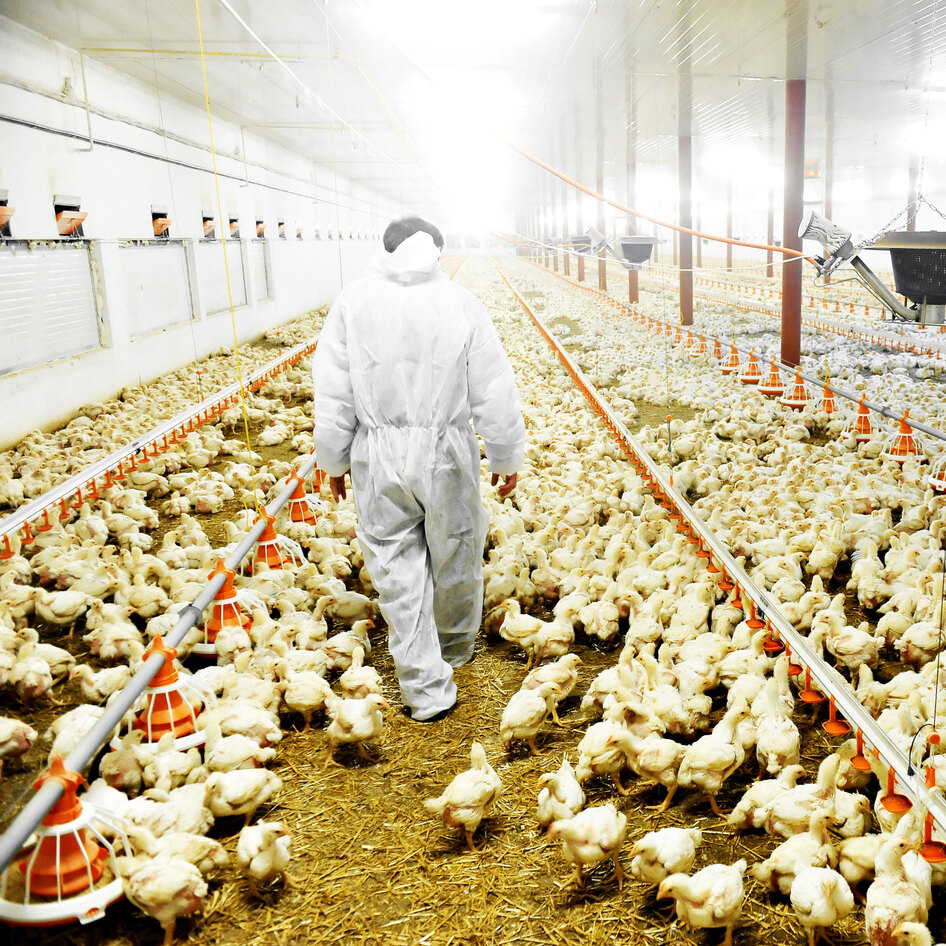The COVID-19 virus can survive in chicken, salmon, and pork for up to 21 days, according to preliminary research conducted in Ireland and Singapore and published in bioRxiv (a platform that hosts scientific papers that have yet to be peer-reviewed). In August, Chinese officials in Shenzhen and Xian found the presence of the COVID-19 virus on packages of chicken and shrimp imported from Brazil and Ecuador, respectively. Study researchers set out to learn about how the virus survives on meat by inoculating store-bought samples of salmon, chicken, and fish with SARS-CoV-2—the virus that leads to COVID-19. The samples were stored in different temperatures and tested for the virus at 1, 2, 5, 7, 14, and 21 days. Researchers found the presence of SARS-CoV-2 in both refrigerated and frozen samples at the three-week mark.
While the direct consumption of meat products has yet to be determined as a source of COVID-19 spread, slaughterhouses worldwide have become hotspots for the spread of the virus, due in large part to the nature of the shoulder-to-shoulder work required to dismember animals and pack their parts for consumption. Researchers in this study advised that the virus’ survival rate on imported meat, handled by workers who are potentially COVID-19 positive, could be responsible for secondary outbreaks of COVID-19 in areas where the virus seemed to have been eradicated. “Recent outbreaks have emerged in Vietnam, New Zealand, and parts of China where there had been no cases for some months,” the researchers wrote. “Importation of contaminated food and food packaging is a feasible source for such outbreaks and a source of clusters within existing outbreaks. This should alert food-safety competent authorities and the food industry of a ‘new normal’ environment where this virus is posing a non-traditional food safety risk.”
As of September 11, there have been at least 39,000 positive COVID-19 cases tied to meatpacking facilities in the United States at least 417 plants and at least 184 workers have died as a result of the virus in 27 states, according to data from the Midwest Center for Investigative Reporting.
JUMP TO ... Latest News | Recipes | Guides | Health | Subscribe







